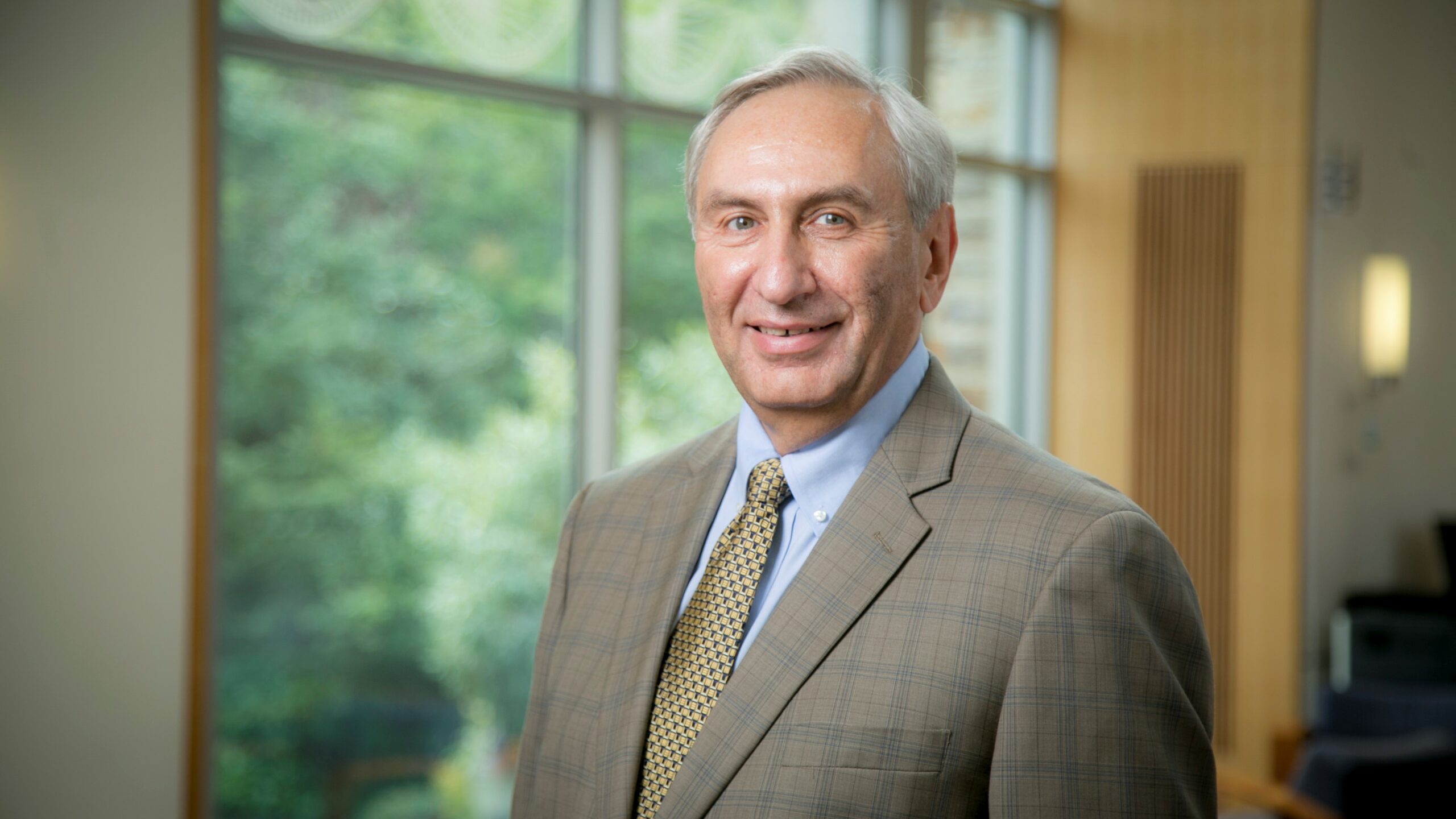Duke’s Michael Rubinstein Honored with 2022 Nelson W. Taylor Award
Elizabeth Witherspoon
The materials scientist was recognized for outstanding contributions to polymer and soft matter physics

Michael Rubinstein, Aleksander S. Vesic Distinguished Professor of Mechanical Engineering and Materials Science, Biomedical Engineering, Chemistry and Physics at Duke University, has been selected for the prestigious 2022 Nelson W. Taylor Award by the Penn State University Department of Materials Science and Engineering. He is honored for “outstanding achievements and contributions in the field of materials science.”
An international expert in theory and computer simulations of polymers, a type of long-chain molecules made up of repeating units that make up many materials in our day-to-day life, Rubinstein joins the esteemed ranks of recipients of this award since 1970, including six Nobel Laureates.
“Clearly, our goal is to recognize the foremost contributors in materials at the time of the award. You certainly meet this criterion,” wrote Susan Sinnott, professor and head of the Department of Materials Science and Engineering at Penn State.
Rubinstein will deliver the 2022 Nelson W. Taylor Lecture on the theme “Advances in Polymer Physics,” at Penn State’s upcoming symposium on Materials to Enhance Human Health.
A member of Duke University faculty with joint appointments in four departments since 2018, Rubinstein also is a Duke MEDx Investigator, co-founder of the Duke Soft Matter Center, a senior investigator with the five-year, $20-million NSF-funded Duke Center for the Chemistry of Molecularly Optimized Networks (MONET), which comprises an international team of leading researchers. He is also a steering committee member of the Duke Materials Initiative (DMI) and last fall co-organized the 2021 Duke Soft Matter Symposium: Polymer Networks from Design to Application.
The research in Rubinstein’s research group focuses on developing simple physical models of soft matter and biological systems ranging from polymer elastomers (e.g., plastics and rubber) and gels to mucus in human lungs. Soft matter is a subfield of science that investigates properties of complex fluids, polymers, colloids (mixtures containing suspended particles), foams, gels and many biological materials, among others.
In highly collaborative and interdisciplinary work cutting across physics, chemistry, biomedical and mechanical engineering and materials science, Rubinstein’s group performs computer simulations and experiments to test their theoretical models. They work with experimental, computational and theoretical groups at Duke, within Research Triangle, at other universities and research laboratories in the U.S. and worldwide. An example is his collaboration with physicians at UNC-Chapel Hill who are studying the role of thick mucus buildup in the lungs in cystic fibrosis.
After earning his PhD at Harvard, Rubinstein worked in theoretical polymer research at AT&T Bell Labs and Kodak Research Laboratories, before joining the faculty at UNC-Chapel Hill’s Department of Chemistry.
